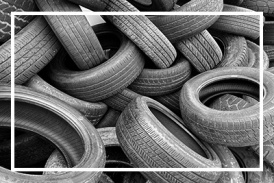Fluoride Debate Heats Up — Riverdale Dentist Says Removing It Will Worsen Dental Health Crisis
“Fluoride is not some synthetic additive—it’s a naturally occurring mineral that strengthens tooth enamel and helps reduce the risk of cavities,” said Dr. Glick, a longtime advocate for preventive oral health. “Removing it from drinking water would be a catastrophic step backward.”
Fluoride has been intentionally added to public water systems since 1945, when Grand Rapids, Michigan, became the first city in the world to fluoridate its water. According to the Centers for Disease Control and Prevention (CDC), over 73% of the U.S. population currently receives fluoridated water. The CDC recommends a level of 0.7 milligrams per liter, calling it both safe and effective.
“Water fluoridation is one of the greatest public health achievements of the 20th century,” Dr. Glick emphasized. “It reduces cavities by up to 25% in both children and adults, and when paired with sealants in children, fluoride treatments can lower cavity risk by as much as 95%.”
At Riverdale Family Dental, Dr. Glick provides professional fluoride treatments for pediatric patients and select adults, particularly those with dry mouth, gum disease, braces, crowns, or bridges.
Media Contact:
The risks of fluoride removal are already evident. In Calgary, Alberta, after fluoride was removed from the water supply in 2011, rates of severe dental infections among children surged. Between 2011 and 2018, the number of children receiving IV antibiotics for dental issues skyrocketed by 700%, with the majority of cases in kids under five.
“Those who suffer the most are the families who can’t afford frequent dental care,” Dr. Glick explained. “Without fluoridated water, rural and low-income communities lose a foundational layer of protection.”
Despite its benefits, fluoride has been subject to misinformation. “Some claim fluoridation is unsafe, but that’s not supported by science,” said Dr. Glick. “The CDC and ADA have both stated unequivocally that fluoridated water is safe. Overexposure can cause mild dental fluorosis—some white spots or discoloration—but severe cases are extremely rare and almost never linked to municipal water.”
If a community removes fluoride, Dr. Glick advises parents to increase the frequency of dental checkups, use fluoride-based toothpaste and mouthwash, and consider professional fluoride treatments every 3 to 12 months, depending on cavity risk. Natural sources of fluoride—like black tea, coffee, grapes, and raisins—can also help.
“We need to treat fluoride like what it is: essential protection,” Dr. Glick said. “The science is clear. Removing it will only widen health disparities and put our most vulnerable populations at risk.
Ryan McCormick
Goldman McCormick PR, INC
+1 5169011103
email us here
Legal Disclaimer:
EIN Presswire provides this news content "as is" without warranty of any kind. We do not accept any responsibility or liability for the accuracy, content, images, videos, licenses, completeness, legality, or reliability of the information contained in this article. If you have any complaints or copyright issues related to this article, kindly contact the author above.
NEXCOM EBC 370 Powers Autonomous Robotics for Industrial Applications
The End Brain Cancer Initiative Partners with Curis to Pre-qualify for PCNSL TakeAim Lymphoma Clinical Trial
Uncle Sharkii Poke Bar Franchisees Honored with Multi-Unit Mastery Award
Kalendarium
Więcej ważnych informacji
 Jedynka Newserii
Jedynka Newserii

 Jedynka Newserii
Jedynka Newserii

Ochrona środowiska

Z powodu braku przejrzystego prawa branża recyklingu odkłada inwestycje. Firmy apelują o szybkie wdrożenie przepisów
Branża recyklingu stoi przed wyzwaniami związanymi z wdrożeniem systemu kaucyjnego, systemu rozszerzonej odpowiedzialności producenta i rozporządzenia PPWR. Brakuje jednak odpowiednich przepisów dostosowujących polskie prawo i realia do unijnych regulacji. W efekcie utrzymującej się niepewności prawnej między 2018 a 2023 rokiem co trzeci zakład recyklingu zamknął działalność. Wiele firm odkłada inwestycje, czekając na uregulowanie rynku. Podobna niepewność dotyczy też producentów opakowań.
Transport
Testowanie pojazdów zautomatyzowanych wkrótce będzie możliwe. To odpowiedź na postulaty przedsiębiorców

Kończą się prace nad przepisami, które mają usprawnić prace badawcze nad pojazdami zautomatyzowanymi. Ma to być odpowiedź na postulaty przedsiębiorców, którzy wskazywali na potrzebę pilnej zmiany przepisów w zakresie testowania pojazdów autonomicznych. Obecne regulacje nie sprzyjają postępowi technologicznemu i rozwoju autonomiczności pojazdów, o czym świadczy bardzo niewielka liczba wydanych uprawnień do ich prowadzenia.
Firma
Przedsiębiorcom coraz bardziej doskwiera niestabilność i skomplikowanie przepisów podatkowych. Problemem są też niejasne ich interpretacje

Polscy przedsiębiorcy często negatywnie oceniają jakość przepisów podatkowych – wynika z raportu „Przedsiębiorcy pod lupą fiskusa 2025” przygotowanego przez firmę doradztwa podatkowego MDDP we współpracy z Konfederacją Lewiatan. Ich niepokój budzą niejednolite interpretacje przepisów i niepewność prawa podatkowego, które cały czas jest modyfikowane. Wśród kluczowych zmian w obszarze podatków, które będą dotyczyć praktycznie wszystkich przedsiębiorców, są m.in. wprowadzenie Krajowego Systemu e-Faktur czy zmiany w podatku od nieruchomości.
Partner serwisu
Szkolenia

Akademia Newserii
Akademia Newserii to projekt, w ramach którego najlepsi polscy dziennikarze biznesowi, giełdowi oraz lifestylowi, a także szkoleniowcy z wieloletnim doświadczeniem dzielą się swoją wiedzą nt. pracy z mediami.










.gif)

 |
| |
| |
|